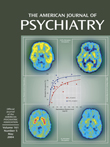To the Editor: Drs. Sunder and Wisner raise several questions regarding our study’s methods. We have clear answers for some of them but not for all. Regarding time trends in the rates of premature birth, this would be a potential confounder had our sampling not matched for year of delivery. Given the matching procedure, confounding by time effects is not a concern.
The writers mention several other potential confounding factors: socioeconomic status, history of premature labor, gestational bleeding, and uterocervical abnormalities. One of these risk factors would act as a confounder, however, only if it increased the risk of both premature delivery and the use of antidepressants. Given that we observed a specific effect of SSRI exposure, such a confounding factor would also have to increase the risk of SSRI exposure without increasing exposure to tricyclic drugs. We are not aware of any evidence that these risk factors for premature delivery are specifically associated with the use of one class of antidepressant.
Regarding the effects of early pregnancy exposure on premature delivery, we agree that the mechanism for such an effect is not clear. But we reported what we observed. Whether our finding is a chance error or a true effect will be decided by replication in other studies rather than by argument. We agree that the study by Pastuszak et al. (1993) indicated a difference in the rate of miscarriage rather than the rate of premature delivery, and we appreciate that Drs. Sunder and Wisner corrected our error.
We agree that confounding due to differences in the severity of depression is the greatest threat to the validity of our findings or those of any observational study. Depression clearly satisfies essential criteria for a potential confounding factor as it increases the risk of both antidepressant exposure and premature delivery. We attempted to account for this potential confounding by matching for history of depression treatment. While this method is certainly an advance over previous studies (in which comparison groups did not suffer from depression), it is far from perfect. Even measures of depressive symptoms in the exposed and unexposed groups would not rule out confounding due to unmeasured differences. Our article clearly acknowledges the potential for residual confounding due to differences in depression severity during the index pregnancy. Once again, the specificity of the observed effect (association with SSRI exposure but not with tricyclic exposure) argues against confounding as an explanation. As we pointed out, this question could be answered definitively only if depressed pregnant women were randomly assigned to an SSRI antidepressant or placebo. We doubt that such a study will ever be conducted. Instead, we will probably have to rely on even larger observational studies to compare risk across multiple classes of antidepressant drugs.
In the end, we suspect that we differ with Drs. Sunder and Wisner regarding the value we place on different types of evidence. Our design, a population-based sample of exposed children and a systematically selected population-based comparison group, does not permit the more detailed assessments that are possible with specialty clinic-based groups. We believe, however, that systematic sample selection and careful matching offer the best protection against bias and unmeasured confounding.

